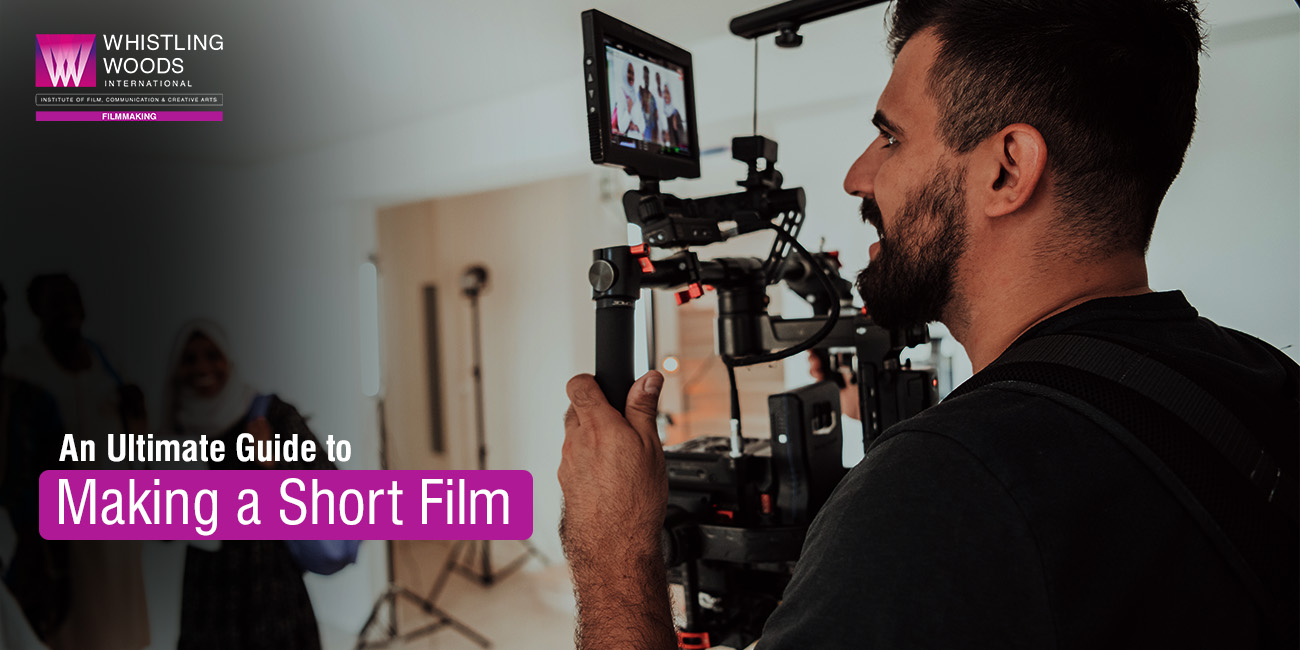Short films are a captivating form of cinematic art that tells a story in a condensed time frame, usually no longer than 40 minutes, and sometimes as short as 30 seconds. They demand a unique and distinct set of skills and techniques that differ from feature-length films. Acquiring the ability to create quality short films is an essential step in enhancing your filmmaking skills, as it allows you to hone your direction and post-production expertise. Filmmaking is an eclectic process that involves a combination of storytelling, visual effects, sound, and editing. In this article, you will learn about the fundamental steps involved in creating a short film movie, from pre-production to post-production, and how to master the art of telling an engaging story in a limited time frame.
How to make a Short Film?
3-Stages of short filmmaking
Making a short film is a complex process that requires careful planning and execution. Several elements need to come together to create a successful short film, from scriptwriting and casting to shooting and post-production. One of the crucial aspects of making a short film is the shooting process, which involves three main stages. These stages include pre-production, production, and post-production. Each stage requires different skills, tools, and techniques to bring your vision to life. In the pre-production stage, you’ll work on planning and preparing for the shoot, such as scouting locations, casting actors, and creating storyboards. During the production stage, you’ll shoot the film, set up shots, direct actors, and capture footage. Finally, in the post-production stage, you’ll edit and refine the film, adding special effects, sound, and music to create a polished final product.
1. Pre-Production:
Developing a storyboard is a fundamental step in the process of creating a short film. It involves visually mapping out each scene to determine the necessary elements such as props, lighting, camera angles, and other essential details. By breaking down the story into scenes, you can create a clear plan for the entire filmmaking process, ensuring that each shot is executed as per the script. The storyboard acts as a blueprint for the entire production and serves as a reference for the director, cinematographer, and other crew members. It is a crucial tool that helps to ensure the project’s success and brings the story to life coherently and cohesively.
Must Check: How To Choose The Best Film Schools In India?
2. Production or Filming Stage:
During the filming stage of a short film, a filmmaker must be very vigilant and attentive to every detail. Every shot, every line of dialogue, and every camera angle must be meticulously planned and executed. It is a process that requires the coordination and convergence of the entire unit, as the lights, camera, and sound gears must all work together seamlessly to achieve the desired result. This is a critical stage of the filmmaking process, where even the slightest mistake can have a significant impact on the final product. Therefore, the filmmaker needs to maintain his focus and ensure that everything is checked and rechecked before moving on to the next scene.
3. Post-Production:
In the world of filmmaking, the final stage of post-production is crucial to give your project a polished look, sound, and feel that will leave a lasting impact on viewers. This stage involves meticulously editing and color-correcting every single shot and scene and incorporating special effects that truly elevate the visual experience. It is the stage where all the pieces of the puzzle come together to give your project the final touch it needs to shine and captivate its audience.
Whistling Woods International offers a course curriculum that is tailored to meet the needs of the film industry. The curriculum is a unique blend of theoretical and practical aspects, which ensures that students have a comprehensive understanding of the subject matter. The learning process is collaborative, and students can interact with film industry experts to gain insights and hands-on experience. Regular practice sessions enable them to hone their craft and develop their skills.
Our courses cover a wide range of subjects and are designed to equip you with the skills and knowledge you need to succeed in your chosen field. Enrol now and take the first step toward achieving your career goals.
- BSc in Filmmaking | (3 Years)
- Diploma in Screenwriting | (1 Year)
- MA in Screenwriting | (2 Years)
- MA in Filmmaking with Specialisations | (2 Years)
At Whistling Wood International, we are committed to providing our students with a holistic education that goes beyond just academics. In addition to their core courses, our students also have the opportunity to engage in several co-curricular studies, which are designed to broaden their knowledge and skills. These studies include Film Appreciation, International Art Literature Culture, Production Design, and Music, and are taught by experienced professionals in their respective fields.
Furthermore, for students interested in pursuing a career in the film industry, we offer degree courses in Filmmaking. These courses are accredited by the esteemed Tata Institute of Social Sciences (TISS), ensuring that our students receive a top-notch education that is recognised by industry professionals. Through a combination of classroom lectures, hands-on training, and industry exposure, our Filmmaking program equips students with the skills and knowledge needed to succeed in this exciting and dynamic field.

